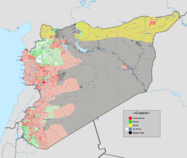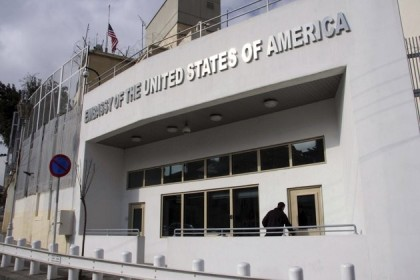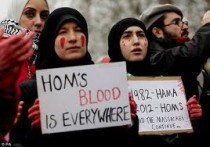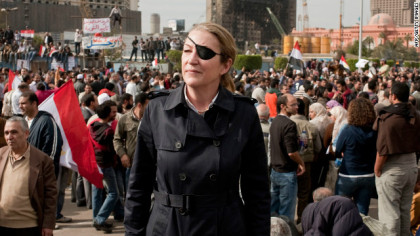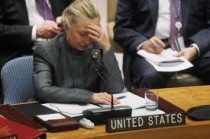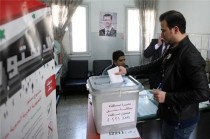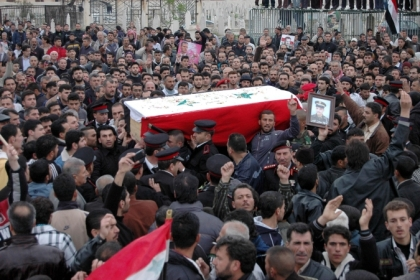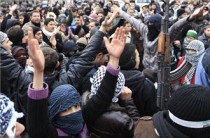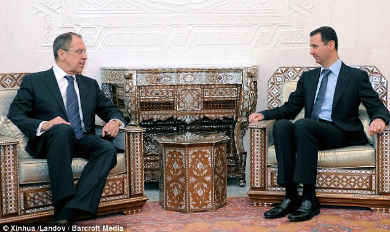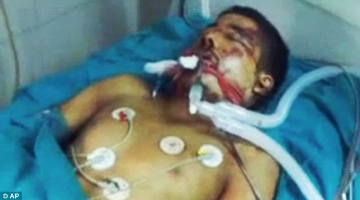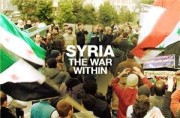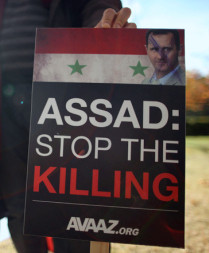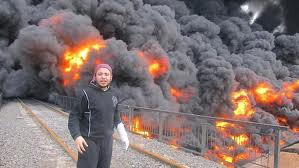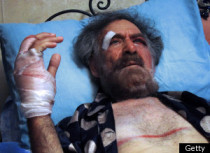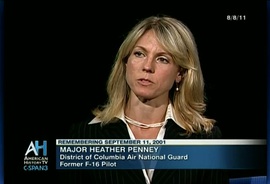.................................Syrian Civil War..........................................
Al Jazeera Syria Live Blog
Thousands continue to take to the streets across Syria, despite the bloody crackdown on protests. Activists say that thousands of civilians have been killed by security
forces. We bring you the latest news from various sources. Read more
__________________________________________________________
Letter of President Obama on Syria, March 12, 2014
Syrian Civil War
Wikipedia
The Syrian Civil War is an ongoing multi-sided armed conflict with international interventions[79] taking place in Syria. The unrest began in the early
spring of 2011 within the context of the Arab Spring protests, with nationwide protests against President Bashar al-Assad's government, whose forces responded with violent crackdowns.[80] The conflict gradually morphed from mass protests
to an armed rebellion after months of military sieges.[81] A United Nations report released in December, 2012, stated that the conflict had "become overtly sectarian in nature",[82][83] between Alawite–dominated government forces, militias and other Shia groups[84] fighting primarily against Sunni-dominated rebel groups;[85] however both opposition and government forces denied that.[86][87] Read more
U.S. Embassy in Syria Closed, Diplomats Evacuated
U.S. Embassy in Syria Closed, Diplomats Evacuated
By KIRIT RADIA | ABC News
February 6, 2012
The United States has whisked its remaining diplomats out of Syria and suspended operations at its embassy in Damascus as violence there continues to increase, U.S.
officials told ABC News.
The skeletal staff, including Ambassador Robert Ford, departed quietly despite in some cases being denied exit visas by Syrian authorities, the officials
said.
"The recent surge in violence, including bombings in Damascus on Dec. 23 and Jan. 6, has raised serious concerns that our Embassy is not sufficiently protected from armed
attack," State Department spokeswoman Victoria Nuland said today. "We, along with several other diplomatic missions, conveyed our security concerns to the Syrian government but the regime failed to
respond adequately."
The embassy had already drawn down its staffing over the past several months amid concerns about their security. After the latest round of reductions in January a core
group of only 17 remained in the country. Some departed overland to Jordan while others flew out of the airport in the capital.
The shuttering of the embassy follows similar steps by other Western countries in recent weeks. A U.S. official said that talks are ongoing with Poland to serve as the
American protecting power in Syria while the U.S. embassy is closed.
Today's move comes after the Obama administration says its requests to Syrian authorities for increased security around the American embassy and its diplomats fell on
deaf ears. The embassy is situated on a busy intersection in Damascus and officials say they feared al Qaeda elements, which are believed to be behind a string of car bombs in the Syrian capital,
could target the Americans next. They had requested that the street the embassy is on be closed, but nothing was done.
The embassy had already been targeted by a pro-Assad mob last July after Ambassador Ford defied restrictions on his travel outside the capital and visited the restive
city of Hama. Some in the crowd scaled the outer walls of the embassy and defaced the exterior, including the American flag, before being chased away by embassy guards.
The U.S. embassy, like other diplomatic facilities there, is guarded by Syrian security forces. U.S. officials say they were slow to respond and accused the government of
sponsoring the protest.
Similar mobs have targeted Ambassador Ford's convoy when he went to visit a prominent opposition leader in September. Ford and his staff barricade themselves in the
leader's office for several hours before Syrian security finally arrived to disperse the crowd. As they left the pro-Assad protestors pelted the cars with rocks, eggs, and tomatoes, damaging one of
them significantly, officials said at the time.
The Syrian government's crackdown on the movement to oust President Assad has become increasingly bloody in recent months. The United Nations stopped counting the dead
late last month, saying it was too hard to keep up with and verify the body counts. At the time it placed the death toll at more than 5,400. Since then there have been reports of hundreds more
killed.
Opposition elements have also stepped up efforts to fight back, raising fears that the once peaceful movement could evolve into a civil war.
Ambassador Ford has been one of the most vocal critics of the Assad government over the past year. In August President Obama called on Assad to step down, and the United
States has supported resolutions in the United Nations Security Council that would do the same.
The latest effort at the United Nations, proposed by Morocco and backed by the Arab League, was vetoed on Saturday by Russia and China who have maintained support for
President Assad and are reluctant to endorse another resolution that could lead to foreign intervention like in the case of Libya. Read more
Journalist Marie Colvin, Remi Ochlik, Killed In Syria
Marie Colvin - Sunday Times
Marie Colvin, Wikipedia "My job is to bear
witness. I have never been interested in knowing what make of plane had just bombed a village or whether the artillery that fired at it was 120mm or 155mm."
Daily Mail - Mail Online
By Charles Walford and Nabila Ramdani
February 23, 2012
Mother of veteran war reporter Marie Colvin said her daughter was due to leave Syria on SAME DAY she was killed by a rocket
The mother of journalist Marie Colvin, who died in a rocket attack in Syria, said her daughter was on the verge of leaving the city because it was so
dangerous.
Rosemarie Colvin described her daughter as passionate about her work, even when it got extremely hard.
The 55-year-old Sunday Times reporter died alongside French photographer Remi Ochlik, 28, in a rocket attack on the besieged city of Homs this morning.
Speaking from her home in East Norwich, New York, Mrs Colvin said: 'She was supposed to leave (Syria) today,' adding that her daughter had spoken yesterday with her
editor at the Sunday Times who ordered her to leave because it was so dangerous.
Mrs Colvin said: 'She had to stay. She wanted to finish one more story.'
The award-winning journalist was the eldest of five children and is survived by her mother, two sisters and two brothers.
Her mother told reporters: 'The reason I've been talking to all you guys is that I don't want my daughter's legacy to be ''no comment'' ... because she wasn't a ''no
comment'' person.'
'Her legacy is: Be passionate and be involved in what you believe in. 'And do it as thoroughly and honestly and fearlessly as you
can.'
Russia and China Block U.N. Action on Crisis in Syria
Russia and China Block U.N. Action on Crisis in Syria
The New York Times
By NEIL MacFARQUHAR and ANTHONY SHADID
February 4, 2012
UNITED NATIONS — A United Nations Security Council effort to end the violence in Syria collapsed in acrimony with a double veto by Russia and China on Saturday, hours
after the Syrian military attacked the city of Homs in what opposition leaders described as the deadliest government assault in the nearly 11-month uprising.
The veto and the mounting violence underlined the dynamics shaping what is proving to be the Arab world’s bloodiest revolt: diplomatic stalemate and failure as Syria
plunges deeper into what many are already calling a civil war. Diplomats have lamented their lack of options in pressuring the Syrian government, and even some Syrian dissidents worry about what the
growing confrontation will mean for a country reeling from bloodshed and hardship.
The veto is almost sure to embolden the government of President Bashar al-Assad, which brazenly carried out the assault on Homs on the day that the Security Council had
planned to vote. It came, too, around the anniversary of its crackdown in 1982 on another Syrian city, Hama, by Mr. Assad’s father, Hafez, in which at least 10,000 people were killed in one of the
bloodiest episodes in modern Arab history. Read more
Syria - Protests - New York Times
The wave of Arab unrest that started with the Tunisian revolution of January 2011 reached Syria in mid-March, when residents of a small southern city took to the streets
to protest the torture of students who had put up anti-government graffiti.
President Bashar al-Assad who inherited Syria's
harsh dictatorship from his father, Hafez al-Assad, at first wavered between force and hints of reform. But in April, just days after lifting the country's decades-old state of emergency, he launched
the first of what became a series of withering crackdowns, sending tanks into restive cities as security forces opened fire on demonstrators.
Neither the violence nor Mr. Assad's offers of political reform — rejected as shams by protest leaders — brought an end to the unrest. Similarly, the protesters have not
been able to withstand direct assault by the military's armored forces. Read
more
Syria holds vote on new constitution
Al Jazeera
February 26, 2012
Activists doubt charter proposed by President Assad will end five decades of one-party rule at root of ongoing unrest.
Voting is under way in Syria on a new constitution that could theoretically end five decades of one-party rule, amid an call for a boycott of the referendum from
opposition activists and a continuing government assault on their strongholds.
Polls opened at 7:00am local time (5:00 GMT) on Sunday, with more than 14 million people over the age of 18 eligible to vote at 13,835 polling stations.
With many parts of the country reeling from weeks of military assault, and army defectors engaged in a guerrilla campaign against loyalist troops, it was unclear how the
ballot could prove to be convincing.
Bashar al-Assad, the Syrian president, unveiled the proposed new national charter earlier this month in his latest reform pledge since protests erupted last
March.
The resulting violence has left more than 7,600 people dead, monitors say. Syria blames the violence on "armed terrorist gangs".
Assad has promised to hold parliamentary elections within 90 days if voters approve the new constitution. However, the decision to hold the referendum has failed to ease
global pressure on his government. Read more
Israel hedges its bets on Syria
Al Jazeera
by Roxanne Horesh
February 14, 2012
Herzliya, Israel - Officials here are waffling over what position to take in response to the Syrian uprising. During the early days of the revolt against Syrian President
Bashar al-Assad’s government, officials in Tel Aviv kept a low profile in relation to their northern neighbour. In conventional wisdom, they pursued what has been termed as a policy of "better the
devil we know" - that supporting the status quo was better than not knowing what came next.
Although the Israeli government has been no friend of the Assad administration, policymakers in Tel Aviv maintained a "strategy of silence" towards the Syrian opposition.
Given Syria’s perceived geographic vulnerability, and limited military resources, the chances of Assad leading a successful military campaign against Israel are relatively low. The Israel-Syria
border has remained rather quiet since 1973. Even when the Israeli army killed 26 Palestinian protesters in June 2011, as they marched towards the border between Syria and the occupied Golan Heights,
tensions did not escalate towards a potential conflict between the two states.
Given the recent outburst over containing Iran’s nuclear ambitions and the seeming obsession with a 2012 confrontation, many Israeli officials and analysts have
recommended taking a stronger position in support of the Syrian opposition. They view the prospective collapse of the house of Assad through the prism of Israel’s realpolitik, as a way to break the
so-called Tehran-Damascus axis and as a means of weakening Hamas, the armed Palestinian group that maintained political offices in Syria’s capital. Tel Aviv reportedly sees the current climate as an
opportunity to redraw the map of the region, isolating Iran and bringing Syria into its orbit. Read more
Syria Assad's Army cuts child's face off in Homs
New Video coming out of Babaamr section in Homs Syria. Children are getting there body parts cut off by the country's government thugs. The Syrian Army has kill over 1000 people and has injured over 2000. Assad the dictator over there is killing just like his father in 1982. Get this video on Reddit facebook, youtube, twitter, all your social networks.
BELOW: Bashar al-Assad 'completely committed to the task of stopping violence' wherever it may come from.
Syria's second city, Aleppo, has been hit by deadly explosions. State television blamed "terrorists" for the attacks, which hit security targets. Al Jazeera's Andrew Simmons reports. YouTube
Blasts in Aleppo as 'tanks mass outside Homs'
Al Jazeera
February 10, 2012
Explosions have rocked Syria's commercial capital, Aleppo, with state media reporting attacks on a military intelligence building and a security forces
headquarters.
Syrian state television said two explosions had taken place on Friday morning and blamed the attack on "armed terrorist gangs."
The broadcaster said that 25 people were killed and 175 wounded, including civilians and members of the security forces.
Mangled, bloodied bodies as well as severed limbs lay on the pavement outside the targeted buildings, as shown in live footage on Syrian television. It said one of the
blasts targeted a military intelligence centre and the other a security forces building.
The General Commission of the Syrian Revolution, an opposition group, said that the attacks were "staged by the regime," in a statement emailed to the AFP news
agency. Read more
Imperialism, despotism, and democracy in Syria
Al Jazeera
by Joseph Massad
February 6, 2012
The stark choice between a fascist or an imperialist course in Syria should be discarded for a third and better course.
New York, NY - In the context of the US invasion of the Gulf in 1991, British academic Fred Halliday announced his new right-wing affiliations in the British newspaper
the New Statesman by declaring: "If I have to choose between imperialism and fascism, I choose imperialism." It never occurred to Halliday that he could have opposed both and supported home-grown
democratic struggles instead.
This was indeed a watershed moment for Arab, American, and European anti-imperialist leftists who would become turncoats, moving from a principled opposition to
imperialism to a principled and financially more rewarding support of it. Like much of the scholarly and journalistic output of turncoats, Halliday's sober and academically valuable studies, written
before his transformation into a pro-imperial apologist, were followed by forgettable and mediocre studies after it, so much so that he did not publish a single study after 1991 that had academic
merit or even a shelf life beyond a few weeks (though his Arab turncoat comrades saw fit to translate these later studies to Arabic!).
The stark opposition that Halliday drew between American imperialism and Saddam's despotic rule preceded the events of 9/11 and the re-introduction of the term "fascism"
in a slightly altered form to fit US imperialism's new enemies, namely the neologism "Islamofascism", which another British turncoat, Christopher Hitchens, had done so much to
disseminate.
At the time, many Arabs, Europeans, and Americans (myself included), who have been unwavering critics of Saddam Hussein's despotic and terroristic rule and US
imperialism's genocidal wars against Third World enemies, opposed the first US invasion of the Gulf in 1991 and the ensuing 12-year siege, which cost more than a million Iraqi lives, as well as the
subsequent US invasion of Iraq in 2003 and its 8-year occupation of the country, which killed another million Iraqis. Read more
Syrian gunmen break artist's hands as 'warning'
Syrian gunmen break artist's hands as 'warning'
Associated Press
By ZEINA KARAM
August 25, 2011
BEIRUT (AP) — A renowned political cartoonist whose drawings expressed Syrians' frustrated hopes for change was grabbed after he left his studio early Thursday and beaten
by masked gunmen who broke his hands and dumped him on a road outside Damascus.
One of Syria's most famous artists, Ali Ferzat, 60, earned international recognition and the respect of many Arabs with stinging caricatures that infuriated dictators
including Iraq's Saddam Hussein, Libya's Moammar Gadhafi and, particularly in recent months, Syria's autocratic Assad family.
He lay badly bruised in a hospital bed Thursday evening with his hands swathed in bandages, a stark reminder that no Syrian remains immune to a brutal crackdown on a
five-month anti-government uprising.
Ferzat remembers the gunmen telling him that "this is just a warning," as they beat him, a relative told The Associated Press. "We will break your hands so that you'll
stop drawing," the masked men said, according to the relative, who spoke anonymously for fear of retaliation. Read more


